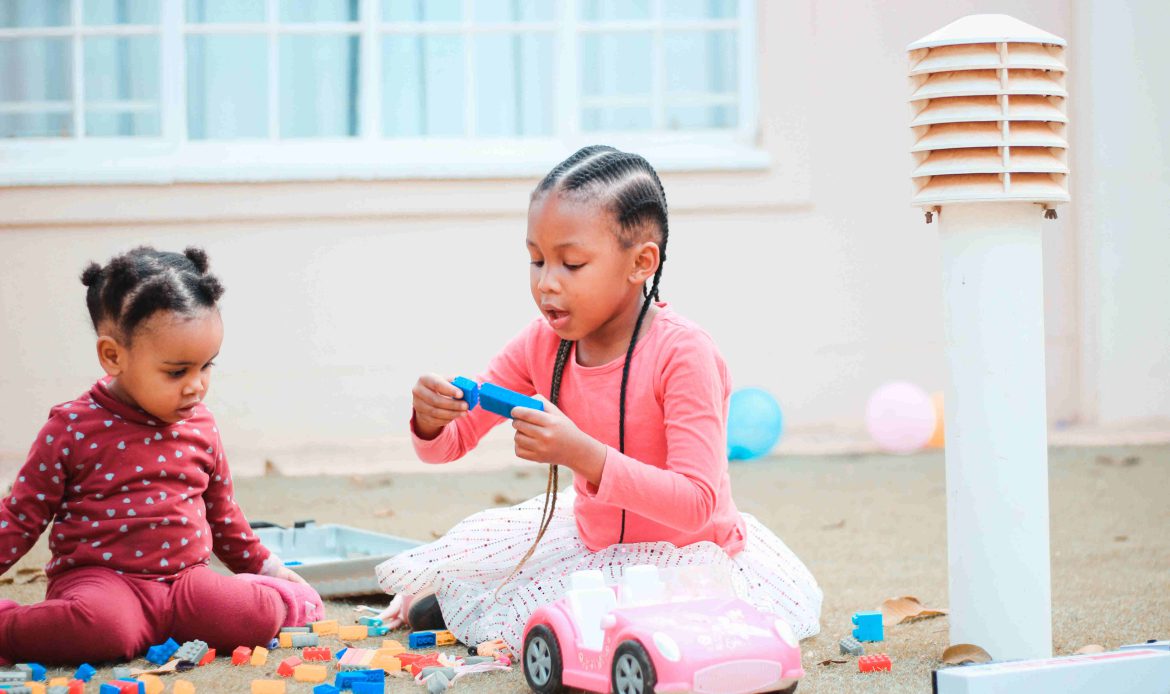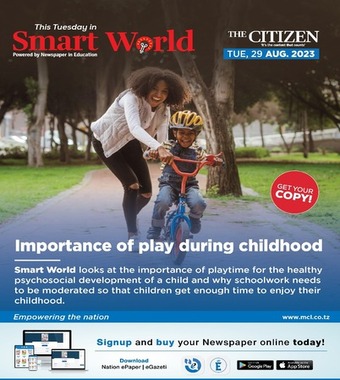This article was published in The Citizen Newspaper, Tanzania on 29th August, 2023.
An educator Brian Sutton-Smith who devoted his life to inquiring and researching the significance of playing for children and adults said: “In playing children rearrange their worlds to make them either less scary or less boring” (Brian Sutton-Smith, ‘The Ambiguity of Play,’ 1997).
In looking at matters of children, the mistake we often make is looking at them with the eye of an adult. The result of this is sometimes seeing some things that children really need and enjoy as boring, useless and a waste of time. Playing is one of those. There is oftentimes a temptation to ignore looking at playing with the eyes of children, who are the direct beneficiaries.
As adults, we make judgments regarding the quality of children’s play. This is because being adults we cannot go deeper into the playing experience and feel the essence of the play. Experts refer to this essence as ‘The expression of children’s subjective experience’ which is incomparable to nothing in the adult understanding.
For adults, especially parents and guardians, having been exposed to life and making a few mistakes, there is a temptation to worry and wish that a child catches up with life early enough before it is too late, and to prevent the child from repeating the same mistakes. This makes some parents load children with a lot of responsibilities, even though with a positive intention of preparing them well for the future.

While teaching at a school in Salford, Manchester, a 10-year-old student of Chinese origin shared in the class how his life is better off at school as compared to home. With his parents going to the UK as migrants, they saw so many opportunities for their family, especially children.
As such, the little boy has so many extra classes at home after school. He has music class, piano class, cookery class, Chinese language class, swimming, as well as martial arts classes.
All these are scheduled on different days of the week, a few hours after he returns from school. In this case, his immigrant parents saw the opportunities in the UK as something not worth losing, and as such they pursued them for their child.
The child is being prepared for great things but at the price of not enjoying his childhood like other children. He will hardly find time to relax and play with other children or think about the things proper for his age and maturity. The child’s abilities in the things he learns will be outstanding, but his way of seeing things, feeling, expressing emotions, and acting has the potential to shine out more brightly in the moments of playing.
These realities are prevalent here in Tanzania too, where parents make children think that all they need to do is to study. Every activity, admonition, correction, or warning is explained in the context of education, or delivered in such a manner. Uneducated people are given as examples of failure in life. Children are also given education-based games for their amusement. This is good, but there is a need for healthy proportions.
According to research by the Health Service Executive (HSE), an all-round public health organization in Ireland, children should be frequently engaged in five different types of play. The first is ‘physical play’ which will help them move their bodies, and build their muscles, bones and physical skills. Second is ‘social play’ with other children, where they will learn to cooperate, share and express themselves appropriately by use of language.
The third is ‘constructive play’ where they experiment with different skills and inclinations, arts, crafts, building things, music, etc. It also sharpens their estimative sense. The fourth is fantasy play where they employ their imagination, and the fifth is games with rules, instilling in them the idea of justice, fairness and accepting failure.
Those skills cannot be learnt effectively if a child is always busy with school assignments. Teachers in a way, contribute to perpetuating the ideology that children should only be engaged in studying. They give young boys and girls a lot of take-home tasks, making them unable to get their minds off studying, even during holidays.
There is a lot of pressure in studying for students in primary school which makes an impression that the material to be studied is too much that it cannot be covered in the proper academic programme. That needs assessment as it is not the goal of our learning system to overload children.
In Tanzania, parents and children find themselves in dilemma and worry if there are chances of succeeding without extra programmes at home, or extra hours in school, what is referred to as ‘tuition,’ all alongside the many take-home and school assignments that children have to do. This is a new business in town.
Assignments are good, but it is necessary that they are given to children with practical considerations. Schooling is not a punishment. Children need to have a chance to live and enjoy their childhood. The freedom of the mind is even more important than the actual time of playing. Everyone feels good when they know they are freed from the burdens of awaiting duties and tasks.

The psycho-social impact of playing without having a lot of schoolwork pending versus playing with a free mind, not thinking of any schoolwork, cannot be compared. The latter has a more positive impact on the child than the former. Children need to freely experience that playful disposition that precedes the apparent spontaneity, voluntary, instinctive and unpredictable excitement and pleasure from their engagement in playing.
In playing children get to experience a different side of themselves too. Scholars attest that playing for children is like a rehearsal for adult life as they master working with others and observing the outcomes of their spontaneous actions and choices. Playing teaches children to stay active and maintain the game by negotiating and agreeing to abide by the rules. This is how adult life is.
These rules, as scholars put it, provide a frame within which the player knows that ‘this is play’ and in that provide a safe place where emotions can be experienced without the consequences they might bring in the real world (Ref. Stuart Lester, Wendy Russell: ‘Children’s Right to Play: An Examination of the importance of play in the lives of Children worldwide,’ page 10).
One last thing to look at is the importance of children interacting with other children. Regardless of whether the parents can afford to make the child play at home alone or with siblings, the social aspect of play is very important so that they develop social skills and learn to control their emotions and be considerate of others and their feelings.
It is helpful for the children’s emotional, cognitive, and behavioural maturity, their grasp of identity, and their relationship with their surroundings and others. As parents and guardians be kind to give children some time to play. This does not mean allowing them to play the whole day, but just to have a healthy balance.
